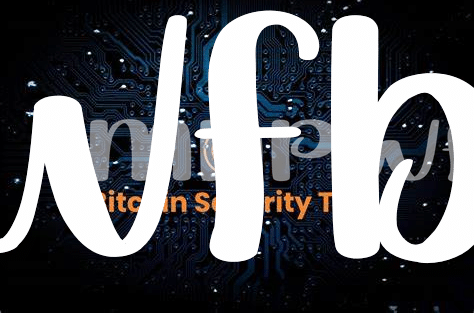🎣 Recognize the Bait in Email Phishing Attempts

Imagine getting an email that looks like it’s from a big Bitcoin company. It says you’ve won a lot of Bitcoin! All you have to do is click a link and enter your details. Sounds too good to be true, right? Well, it usually is. This is what we call a phishing scam, where the bad guys try to trick you into giving them your personal information or even access to your Bitcoin. The email might look real, with logos and all, but there are often little clues that something’s off. Maybe the email address is weird, or there are spelling mistakes. The key is to stay alert and think before you click. Here’s a quick guide to help you spot those tricky emails:
| 🎣 Sign | ⚠️ Red Flag |
|---|---|
| Email Address | It’s similar to, but not exactly the same as the real company’s address. |
| Links | Hover over them. If the address looks odd or unrelated, it’s a trap. |
| Spelling and Grammar | Mistakes that professional companies wouldn’t make. |
| Urgency | Pushing you to act fast, claiming you’ll miss out if you don’t. |
Taking a moment to check these can save you from falling for a scam and keep your Bitcoin where it belongs – with you.
🔍 Verify Websites before You Click or Share Info
In the digital fishing world, scammers dangle bait in the form of too-good-to-be-true offers, hoping you’ll bite. This is especially true when it comes to your Bitcoin. Before you click on a link that promises the moon, take a step back. Is the website’s address the real deal? Sometimes, a tiny typo is all it takes to land in hot water. Bad actors create sites that look almost identical to the legitimate ones, tricking you into handing over your precious info. A quick online search for reviews or double-checking the address can save you a world of trouble.
Now, amidst the whirlwind of online transactions, your vigilance is your best ally. For instance, before making a Bitcoin transaction or sharing sensitive information, pause. Ask yourself: Does everything look as it should? Sometimes, the devil is in the details, like a slightly off website design or unusual requests for personal details. Crypto enthusiasts have an extra layer of homework, staying ahead of the game by being aware of the latest scams. And when in doubt, consulting trusted sources can shed light on the matter. Remember, knowledge is power, especially in the constantly evolving landscape of Bitcoin security. For a deeper dive into keeping your digital wallet safe in this rapidly changing environment, visit https://wikicrypto.news/breaking-down-bitcoin-taxes-what-you-need-to-know, a treasure trove of insights and tips.
🔐 Keep Your Bitcoin Wallet Secure and Private

Imagine you have a treasure chest, filled with shiny, digital gold. Now, wouldn’t you do everything to keep that chest locked away, safe from prying eyes? Think of your Bitcoin wallet in the same way. It’s where all your cryptocurrency lives, and it’s worth taking steps to protect it like it’s treasure. To start, always choose a strong, unique password, avoiding obvious choices like birthdays or pet names. 💡Also, consider enabling two-factor authentication (2FA), adding an extra layer of security. This is like having a second key to your treasure chest.
But protecting your digital gold doesn’t stop there. Be cautious about where and with whom you share your wallet information. Just as you wouldn’t shout your bank account details in a crowded place, treat your wallet’s private key and recovery phrases with utmost care. These are the magic spells that unlock your funds, and if they fall into the wrong hands, your treasure could vanish in an instant. So, keep them under lock and key, maybe even written down and hidden away where only you can find them. 🗝️ Remember, in the world of Bitcoin, maintaining privacy and security is akin to keeping your treasure safe from pirates.
🚩 Understand Common Scams and Their Red Flags

In the ever-evolving world of digital currency, staying a step ahead of scammers is crucial. Many of us have heard stories of individuals falling prey to schemes that seem too good to be true. For example, you might come across a message promising you double your bitcoin investment in a matter of days – a classic red flag highlighting something fishy. Another common scam involves impersonating legitimate companies or support services, often through emails or messages that look real but are designed to steal your information or funds. These scams thrive on urgency, pressuring you to act fast or miss out. It’s like receiving an email saying your wallet security is at risk and you must click a link to fix it. Take a deep breath, and remember, genuine services won’t rush you this way. Being informed helps you spot these tricks from a mile away. A helpful resource is bitcoin in emerging markets security concerns, offering insights into how scams operate and affect individuals worldwide. It’s about keeping your eyes open, questioning things that seem off, and never sharing your personal keys or information lightly. Armed with knowledge and a bit of skepticism, you’re better prepared to protect your digital treasure trove.
🛡️ Use Security Tools and Practices for Protection
Imagine you’re strapping on armor before heading into battle. That’s what it’s like when you prepare your digital life against phishing scams, especially concerning Bitcoin. 🛠️Think of using strong passwords as your shield. Each one should be unique, long, and a mix of letters, numbers, and symbols. You wouldn’t use a twig to defend against a dragon, right? So, don’t use simple passwords that are easy for scammers to guess. Then, there’s two-factor authentication (2FA), your helmet. It adds an extra layer of security by requiring a second form of identification before you can access your accounts. This could be a text to your phone or a code from an app.
| 🔑 Tool or Practice | 🛠️ How It Helps |
|---|---|
| Strong Passwords | Create a hard-to-crack barrier against unauthorized access. |
| Two-Factor Authentication (2FA) | Adds an additional layer of security by requiring a second form of verification. |
| Regular Software Updates | Keeps your devices fortified with the latest security patches. |
| Secure Wi-Fi Connections | Ensures your online actions aren’t easily intercepted by eavesdroppers. |
Lastly, keep your software updated, like fortifying your castle’s walls, and always connect to the internet via secure Wi-Fi, avoiding the public ones that are akin to opening your gates to invaders. By adopting these simple yet powerful practices, you build a fortress around your Bitcoin, keeping it safe from phishing marauders lurking in the digital shadows.
📚 Stay Informed about New Phishing Techniques and Trends

In today’s fast-paced digital world, keeping up with the latest tricks used by scammers is like trying to hit a moving target 🎯. It might feel overwhelming, but think of it as a detective 🕵️♂️ piecing together clues to stay one step ahead. Every day, scammers get a bit more clever, coming up with new ways to trick us into giving away our precious Bitcoin. But by staying informed, you arm yourself with the knowledge needed to spot these scams from a mile away. It’s like keeping your internet shield polished and ready. Whether it’s through reading articles, joining forums, or following trusted security experts on social media, keeping your ear to the ground is your best defense. And remember, just as you wouldn’t ignore updates about bitcoin versus fiat currency security concerns, don’t overlook the importance of staying updated on phishing tactics. This continuous learning process is not just about protection; it’s about empowering yourself to navigate the digital world with confidence.
